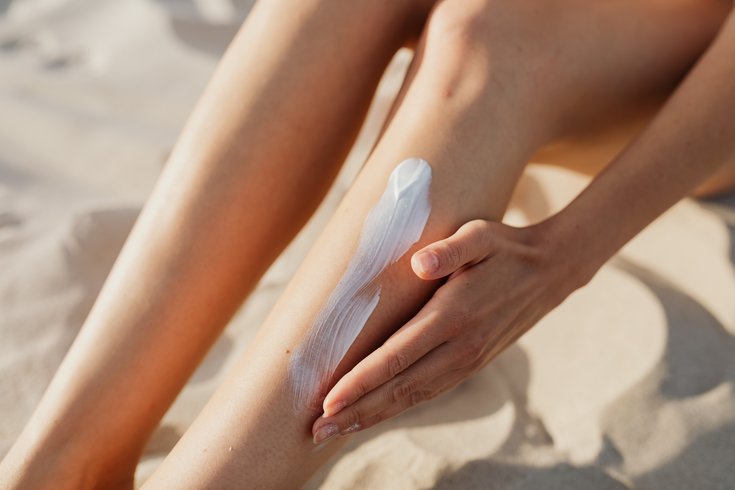
May 25, 2023
 Karolina Grabowska/Unsplash
Karolina Grabowska/Unsplash
Pennsylvania is offering free sunscreen at 46 state parks this summer, including French Creek, Ridley Creek, Nockamixon, Neshaminy and others in the Philadelphia region.
Dozens of state parks in Pennsylvania are again providing free sunscreen this summer in an effort aimed at reducing new skin cancer cases.
Sunscreen dispensers are installed at the beaches and swimming pools of 46 parks, including several within a 90-minute drive of Philadelphia. Beginning Saturday, they will be stocked with 30+ SPF BrightGuard sunscreen to keep visitors shielded from ultraviolet rays while they're having fun under the sun. People are encouraged to use the sunscreen before swimming, boating or enjoying other recreational activities.
Thirteen state parks have been added to the program this year, including Ridley Creek in Delaware County and a pair in Bucks County – Tyler and Ralph Stover. Four other parks in the Philadelphia suburbs are participating again: Neshaminy and Nockamixon in Bucks County, and French Creek and Marsh Creek in Chester County.
Some of the parks were chosen for the program, which started in 2017, because they are located in counties with high melanoma rates; others were selected to highlight their free, outdoor recreational opportunities.
"As the weather warms, it is critical people take the necessary steps to protect themselves from potentially harmful ultraviolet rays when spending extended time outdoors," said Cindy Adams Dunn, secretary of the Department of Conservation and Natural Resources. "I encourage all Pennsylvanians to make sunscreen a part of their outdoors routine to ensure a fun and safe summer."
Each of the state parks participating in the program can be found on the map below. For more information about special programming and amenities at each park, visit the DCNR's website.
Skin cancer is the most common form of cancer in the United States, according to the American Academy of Dermatology. It's estimated that 1 in 5 Americans develop skin cancer at some point in their lives, with about 8,500 people diagnosed each day. Precautionary measures can reduce the risk.
Daily application of a sunscreen with an SPF of 30 or higher provides protection from harmful ultraviolet rays in addition to preventing premature skin aging, wrinkles and dark spots caused by unprotected UV exposure, according to the AAD.
The AAD also recommends people seek shade between the hours of 10 a.m. and 2 p.m. each day, wear sun-protective, lightweight clothing, avoid tanning beds and use extra caution near water, sand and snow, as they reflect the sun's UV rays and can increase the risk of developing sunburn.
There are three major types of skin cancer: melanoma, basal cell carcinoma and squamous cell carcinoma. Their initial symptoms generally include skin irregularities like bumps, lesions and sores anywhere on the body, according to the Mayo Clinic. Rarer skin cancers can cause red or purple patches on the skin or shiny, firm nodules just beneath the skin.
Though not all skin irregularities are caused by cancer, the Mayo Clinic urges people to seek medical attention if they notice something new or painful on their skin. The risk of developing skin cancer increases with age, but it is also one of the most common cancers among young adults, according to the American Cancer Society.
Pennsylvania officials estimate the state's free sunscreen program will benefit 2.6 million visitors this summer. The program is sustained by a cancer prevention fund from the Department of Health. Officials from the DCNR seek out partnerships with local health departments and nonprofits to cover future costs and expand the program to more parts of the state.